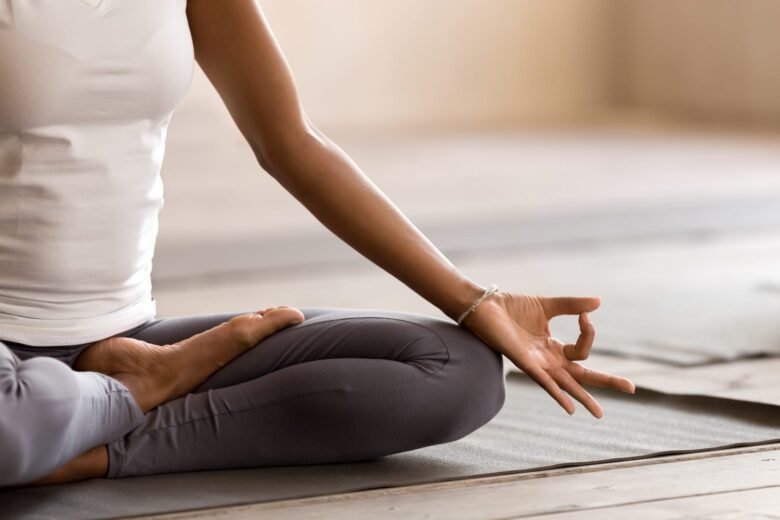Stress is something that many people always have with them in today’s fast-paced world. With family duties, work tasks, digital distractions, and money worries, it’s easy to feel like you have too much to handle. Stress that lasts for a long time can make it hard to sleep. When the body is always awake, it’s hard to relax, fall asleep, and get deep, healing rest. Learning to consciously relax isn’t just a way to feel better right now; it’s also a key way to improve your health and sleep.
The Link Between Being Stressed and Trouble Sleep
Your body makes cortisol and adrenaline when you’re stressed. These are hormones that help you deal with danger. But when these hormones stay high for a long time because of worry, they mess up your normal sleep routine. You might not be able to fall asleep, wake up a lot at night, or wake up too early without being relaxed.
The stress reaction is turned off by relaxation methods, while the parasympathetic nervous system is turned on. This is the part of your body that is in charge of rest and healing. Your body will know it’s safe to let go and rest when you do things that calm you down throughout the day, especially before bed.
For Instant Calm, Take Deep Breaths
One of the easiest and most effective ways to calm down is to take deep breaths. Being able to breathe slowly and deeply tells your nervous system it’s time to calm down. This slows down your heart rate, lowers your blood pressure, and makes your body feel less tense.
Take four deep breaths in through your nose, hold them for seven seconds, and then slowly let them out through your mouth for eight seconds. Do this cycle a few times while sitting or lying down in bed. Deep breathing not only clears your mind, but it also gets your body ready for sleep.
Progressive Relaxation of Muscles
Each muscle group in your body is tensed and then slowly relaxed one at a time during progressive muscle relaxation (PMR). This method can help you relax and become more aware of how your body feels.
Work your way up from your feet to your head. Hold your toes together for a short time, then let go. Start with your face and neck and work your way up to your legs, thighs, stomach, and so on. Regularly doing PMR before bed can help calm a busy mind and make it much easier to fall asleep.
Picture-making and guided imagery
Imagine a calm and peaceful scene, like a beach, a forest, or a mountain view. This is a method called visualization. By picturing these peaceful scenes, you can take your mind off of things that are stressing you out and start to feel calm.
You can also use guided imagery videos or sleep meditations, which make you think of and feel calm scenes and feelings. These records are great for bedtime because they take your mind off of your problems and put it on something relaxing.
Meditation for Mindfulness
Mindfulness is the act of focusing on the here and now without judging it. Being mindful while you focus helps you become more aware of your thoughts and feelings without getting caught up in them. This cuts down on mental clutter, stress, and dwelling on the past, all of which can make it hard to sleep.
Every night, sit still for five to ten minutes and focus on your breath or how your body feels. Bring your mind back slowly if it wanders. This practice trains your mind to calm down faster over time, which helps you sleep better and longer.
Herbal teas and supplements that calm you down
Some herbs naturally calm and sedate you, which can help you relax and sleep better. People often drink herbal teas like chamomile, lemon balm, passionflower, and valerian root before bed. A nice cup of tea an hour before bed can help you relax and become a regular way to start your night.
Another vitamin that is known to help relax muscles and keep you from being restless at night is magnesium. Before taking vitamins, you should always talk to your doctor, especially if you are already taking medicine or treating a health problem.
Do some light yoga or stretch
Relaxing your body with light moves before bed can help get rid of stress. Light stretching or yoga before bed can help loosen up tense muscles, lower cortisol levels, and ease you into rest after a busy day.
Pay attention to slow, healing poses like forward folds, legs-up-the-wall, and reclining twists. For the most relaxing, do these moves while taking deep breaths. This prepares your body for sleep and relieves pain and other symptoms that keep you awake.
Set up a peaceful place to sleep
Your setting has a lot to do with how well you relax and sleep. Your nerve system may be on high alert if your bedroom is messy, loud, or bright. Use soft lighting at night, keep the room cool and quiet, and get rid of things that might be distracting, like phones and bright gadgets.
To help people relax, add things that make noise, diffusers for essential oils, or cozy blankets. Over time, your brain will start to connect your bedroom with rest and sleep.
Avoid stimulants and big meals in the evening
Some foods and drinks can make you too alert to sleep. Coffee, tea, chocolate, and soda all contain caffeine, which can make it hard to fall asleep, even if you drink it hours before bed. Both nicotine and drink can also make it hard to sleep.
Eating big, hot, or rich meals late at night can make you feel bad or give you indigestion. Try not to eat anything at least two to three hours before bed. If you’re hungry before bed, eat something light and sleep-friendly like rice, bananas, or nuts.
Set up a regular routine for going to bed
When you are consistent, your body learns to look forward to rest at a certain time. As you get ready for bed, do the same calming things every night in the same order. This could mean turning down the lights, brushing your teeth, drinking herbal tea, reading, or meditating for a short time.
Do not do things that will stimulate you, like checking your email, watching action-packed TV shows, or looking through your phone. Your brain knows it’s time to switch from being alert to rest when you do something relaxing on a regular basis.
In conclusion, relaxation is a superpower for sleep
In a world that never stops, relaxation isn’t just a nice-to-have; it’s a must. Giving yourself time to relax at the end of the day will not only help you sleep better, but it will also boost your immune system, make you happier, and improve your general health. Whether it’s yoga, deep breathing, meditation, or just a warm cup of tea, doing simple things to relax every day can help you go from having restless nights to having relaxed ones and face each new day with calm and clarity.




